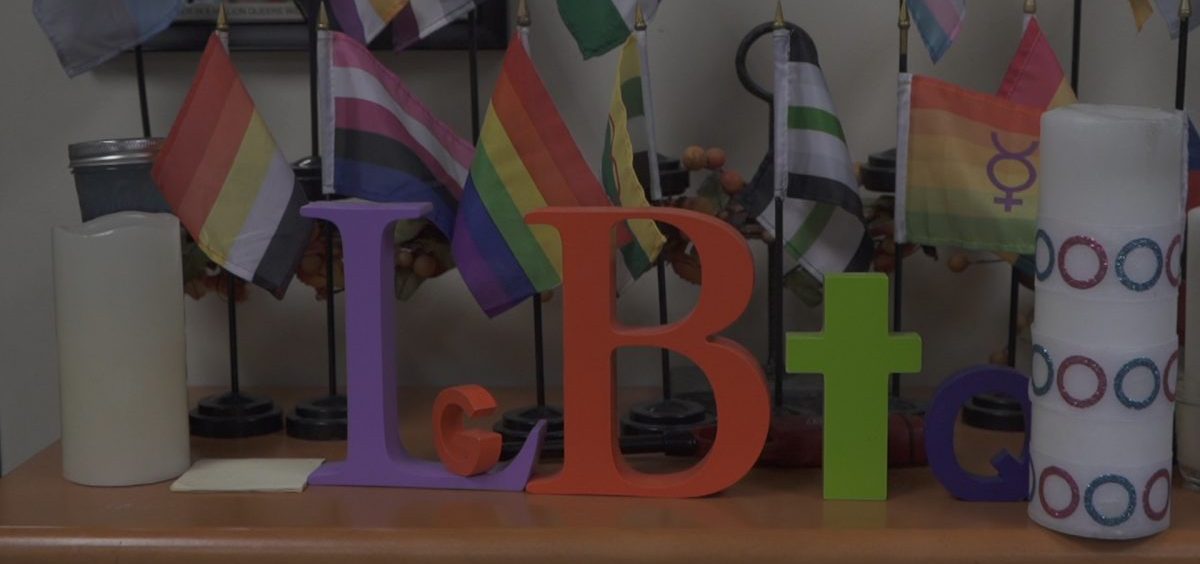
LGBTQ Community Overcoming Turmoil
By: August Knuth, Madison Staley, Nick Mullens
Posted on:
Three months after Ohio University removed delfin bautista as director of the LGBT center, the search for a replacement continues after a failed search this spring.
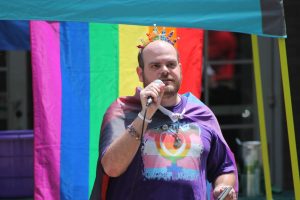
bautista, who uses they/them pronouns and does not capitalize their name, was removed after charging more than $35,000 to a university credit card during the 2018 fiscal year, according to The Post. Ohio University has been searching for a replacement since January, and was down to three final candidates: Roxie Patton, Elliot Director and Matthew Hall. However one candidate dropped out before being interviewed and the university announced in late April that neither of the other two would be offered the position. A new search will commence in the fall.
While many students stated their distrust with the university administration after removing bautista, they also said they were looking forward to finding a new director and moving forward.
“Everyone is still hurting and grieving,” said Ohio University student Sarah Van Fossen. “But, at the same time this is a good opportunity for growth and something new and hopefully better, that’s all we can hope for.”
While the university has been searching for a new center director, local LGBTQ groups in Southeast Ohio, like SEORA, have been trying to stay involved with the students and the director search on campus but have been met with roadblocks.
SOUTHEASTERN OHIO RAINBOW ALLIANCE

SEORA, or the Southeastern Ohio Rainbow Alliance, is an LGBTQ+ group whose goal is “to provide full and comprehensive support and service to the LGBTQ+ community in southeastern Ohio.”
Chris Nevil, the interim Assistant Executive Director of SEORA, said their organization has only been able to keep up with the director search at OU through news reports due to lack of communication between SEORA and the OU administration.
“I don’t really think the community is aware of what’s going on,” Nevil said. “Soley on the fact of how sketchy, no details, and how the whole delfin thing went down. For instance, our organization didn’t even know they hired an assistant director.”
However, Nevil is hoping better days are ahead after communicating with the LGBTQ+ Student Affairs at OU.
“They are all very interested in getting involved with our organization,” Nevil said. “So, I think that is gonna help bridge the gap between us and OU. I wish it could be the center itself, I hope it will be the center itself eventually, once everything gets squared away…”
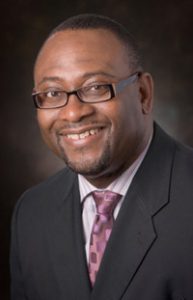
Tyrone Carr, stepped in interim director of the LGBT center and was praised for the work he did, but Nevil said he hopes the new director identifies as LGBTQ.
“I truly think there is something special and there is an extra connection level that goes on if you are LGBTQ and you are talking to somone that is LGBTQ,” Nevil said. “Especially if that person doesn’t feel safe talking to someone else or they might not even be out, they might not even know what they are, and I don’t think a straight person can really be the guidance someone needs in that struggle.”
No matter when OU names a new director, Nevil said SEORA will still continue to serve the LGBTQ community on campus and throughout Southeast Ohio. SEORA has been involved in organizing Athens Pride Fest, drag shows at the public library and Casa Nueva, family picnics at Strouds Run State Park, and more.
SEORA isn’t the only organization involved in Southeast Ohio as a resource for the LGBTQ community.
PRISM
PRISM is an LGBTQ after-school arts program, that provides a safe space for LGBTQ youth and allies ages 12-18 to hang out, participate in art projects, music and sometimes even cooking. It takes place on Mondays at ARTS/West from 3-5 PM. The program collaborates with United Campus Ministries, the OU LGBT Center and ARTS/WEST. They have guest artists every week and focus on self expression and self esteem building for youth.
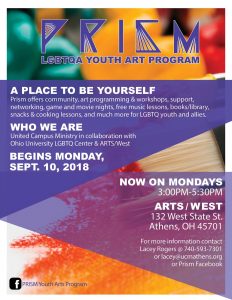
“It was basically created out of acknowledgment that there aren’t very many resources in general for LGBT people in the area but specifically for youth,” Lacey Rogers, a staff member at PRISM and the Assistant Director at United Campus Ministry, said. “And, as we know there is lots of correlation between things like having LGBT identity and, you know, maybe increased substance abuse type issues and depression and bullying and suicide and things like that so we just think its a really important resource to have in our community.”
Dr. Loran Renee Marsan, a Women’s, Gender, and Sexuality studies professor at Ohio University, helped start the program along with her wife Jolena Hansbarger and Tessa Evanosky and Lacey Rogers. Marsan thinks it’s important to provide a space for LGBTQ youth to be themselves in a relaxed environment.
“We’re just a place for them to hang out and for them to experience what a queer space feels like,” Marsan said.

“Because for most people and again in rural and appalachian communities, access to just a space where more people are like them than not like them is important.”
RESOURCES IN SOUTHEAST OHIO
The LGBTQ community in Southeast Ohio is working to make Appalachia better for the community as a whole.
“There’s a whole narrative within the larger LGBT community that you need to escape those rural spaces and I think that has changed more recently as more and more people have been vocal about their love of Appalachia,” Marsan said. “And, their home is Appalachia as queer folk and their acceptance from their friends and neighbors just like any other places. So I think the more people that are vocal and the more resources we have, the more that narrative will shift.”

Not only does Marsan like to act as a resource for her students to go to, she also knows of many resources in the area that the LGBTQ community can take advantage of.
These resources include Counseling and Psychological Services at OU which offers things like counseling, group counseling and psychiatry. The women’s center at OU as well as any WGSS professor can also be outlets for students in the LGBTQ community to go to. United Campus Ministry is a center for spiritual growth and social justice and acts as an ally and safe space to the LGBTQ community.
And, outside of the university, there is the Survivor Advocacy Outreach Program which Marsan says is dedicated to serving the LGBTQ community and their specific concerns in terms of sexual assault and domestic abuse. There is a representative from Equitas Health, a health group that focuses on LGBTQ healthcare and services, located in Athens.
Resources like these can hopefully provide some comfort to those within the community who are still in turmoil after bautista was removed from their position as director of the LGBT Center.
MOVING FORWARD
We made repeated requests for an interview with OU’s Vice President for Diversity and Inclusion Dr. Gigi Secuban to talk about the LGBTQ community on campus. We received this statement from university communications and marketing.
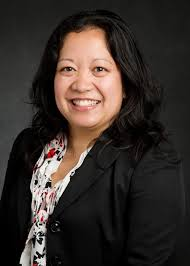
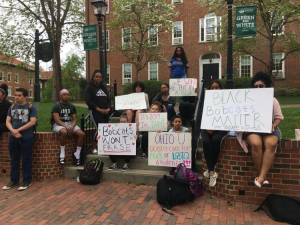
“Thank you for reaching out and for your proactive approach. As you have probably seen on Compass, we are in the middle of our national search for the next LGBT Center Director. Dr. Secuban is interested in talking with you, but she asks that we wait until the new LGBT Center Director has been hired. She is concerned about the integrity of the search process and would also like the new person to have some time to help set strategic direction for the Center’s growth, so an interview is premature.”
This, however, is not the only criticism the administration is facing at this time. The administration made plans to combine the LGBT Center with the Multicultural center. This move was met with protests and a student senate resolution against the move.
Student, Madison Bailey, was in attendance at the student senate meeting. “The LGBT Center doesn’t want this, the Multicultural Center doesn’t want this,” she said. “And student senate was doing their job in voting in favor of the people who are truly going to be affected by this decision.”
In light of the protests and backlash, Ohio University has postponed a planned move of it’s LGBT Center next to the Multicultural Center. Dr. Secuban released a statement on the university’s website on Wednesday saying.
“My true intention was to bring all of our diverse communities together in strength and solidarity — not to push us apart. I have had several discussions with President Duane Nellis about this matter, and I have decided to postpone all relocation plans so that we can truly partner with our students moving forward as we continue to weigh options.”
Bailey responded, “I don’t think our relationship is too far gone to mend things and to actually make a collaborative effort for the good of our communities.”

Bailey is not the only student that feels like trust can be repaired.
“She’s aware that we feel like this, so we’re hoping that we’re going to invite her out to some stuff to try to like make the relationship better,” student Briana Mcelrath said. “But I feel like this was a really good first step in repairing the relationship for both sides, repairing that trust, because we have to trust administration and administration has to trust us, or it’s just not a good situation for either party.”
This postponed move comes the same day as Ohio University was removed from a national index of LGBTQ-friendly colleges and universities after the university stopped responding to questions from the leader of the organization.
The university continues to move forward with the search and trying to mend relationships with the students who lost trust. There is still hope from students and faculty that the relationship can be repaired and a new director will bring more resources and assistance to the LGBT center.
“I think for the administration to gain back trust of students, especially me, they have to prove themselves. They have to prove they really are listening to students and they really are making decisions in the best interests.,” student worker at the LGBT center, Destiniee Jaram, said. “And that diversity is not just a buzzword to get grant money and black people to come to this school so they can get higher rankings. That’s what I need them to do. Prove themselves.”

